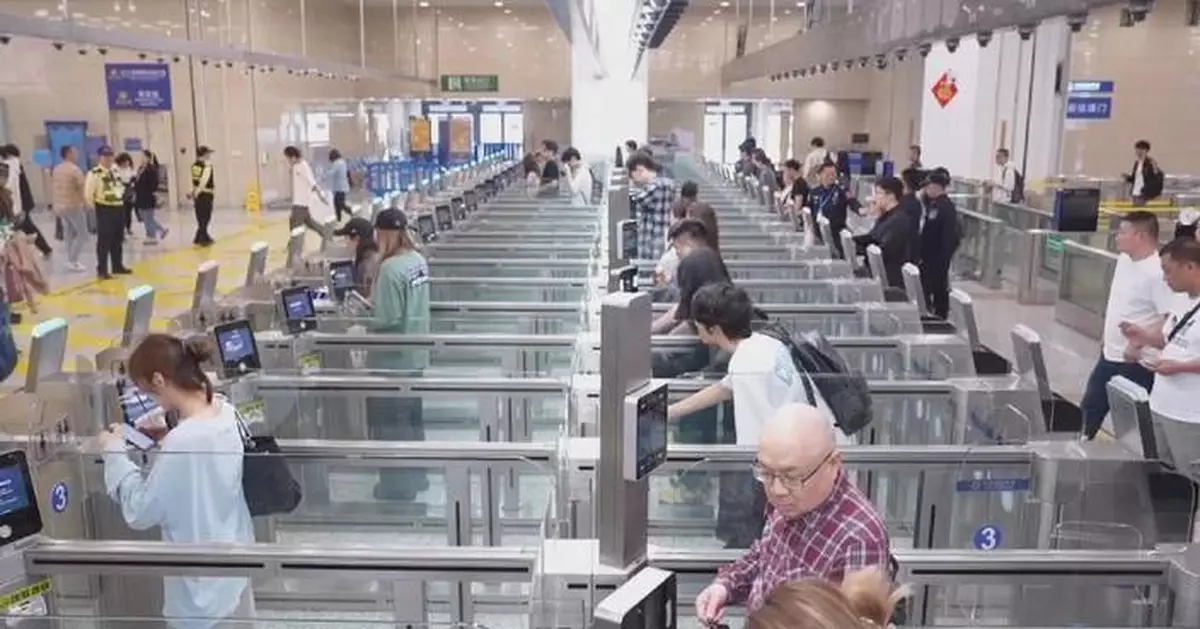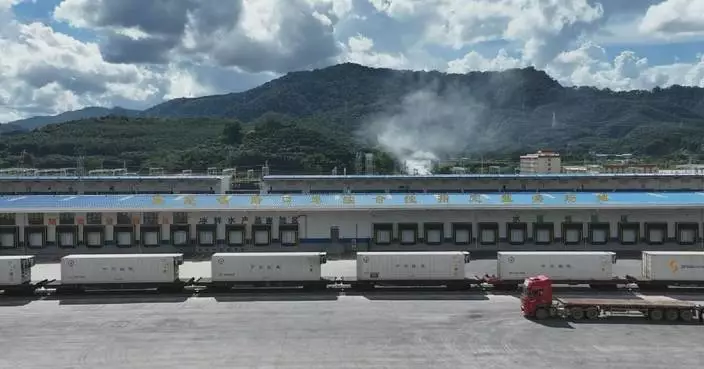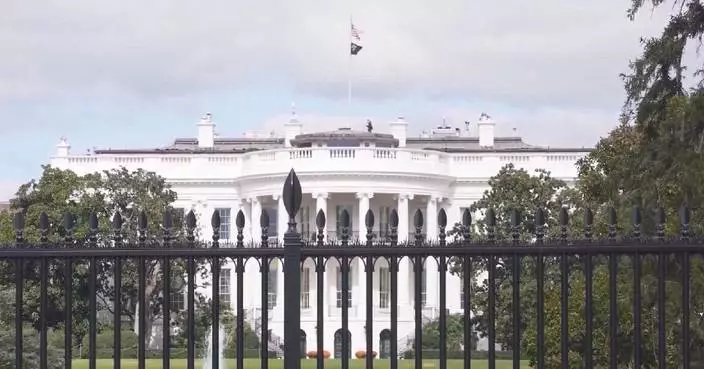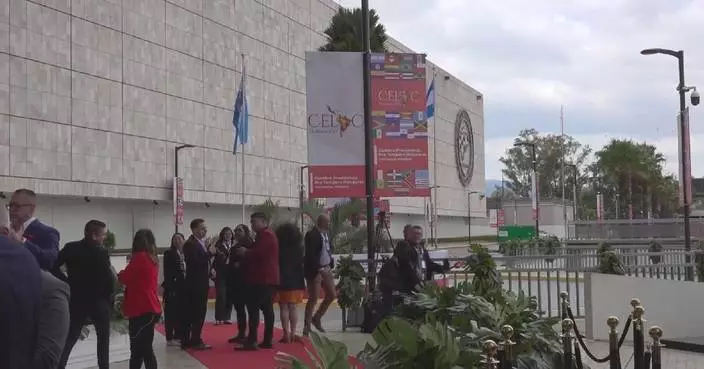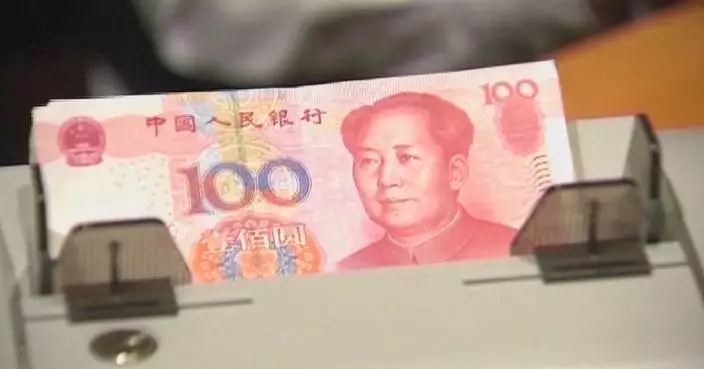Ports in Zhuhai City of south China's Guangdong Province neighboring the Hong Kong and Macao Special Administrative Regions saw a surge in border entries into Guangdong by residents from the two regions on Friday -- the first day of the three-day Qingming (Tomb-Sweeping) Festival.
Between midnight and 16:00, Zhuhai's ports registered over 385,000 border entries, with the majority of travelers heading to the mainland for ancestral grave visits and sightseeing.
It is a tradition for the Chinese people to return to their hometowns and pay respect to their ancestors and deceased family members on the Qingming Festival, a day for tomb sweeping which falls on April 4 this year.
"Every year during the Qingming Festival, we travel through Gongbei Port to return to our hometown in Zhuhai to honor our ancestors. Now, the customs environment is very good, and the clearance process is smooth," said a Macao resident surnamed Liang.
On Friday morning, 129 manual channels and e-channels were opened at the Gongbei Port lying between Zhuhai City and Macao. Most passengers chose e-channels to pass the customs, which allows them to complete the procedure in three to five minutes.
"The number of inbound travelers from Hong Kong and Macao has increased compared to regular days. At peak hour this morning, we processed over 7,600 travelers per hour, representing a rise of about 27 percent. In response, ahead of the holiday, we further optimized the 'certificate-free' channels, fully deployed staff on duty, and opened 24 manual channels and 105 e-channels at the two entry halls to ensure smooth passenger flow," said He Shujuan, deputy director of the Border Inspection Department at Gongbei Port.
Statistics show that the Zhuhai Port on the Hong Kong-Zhuhai-Macao (HKZM) Bridge also saw a peak in passenger flow for homebound travelers paying respect to their ancestors, with the inbound traffic reaching 4,900 passengers per hour during the busy period on Friday morning.
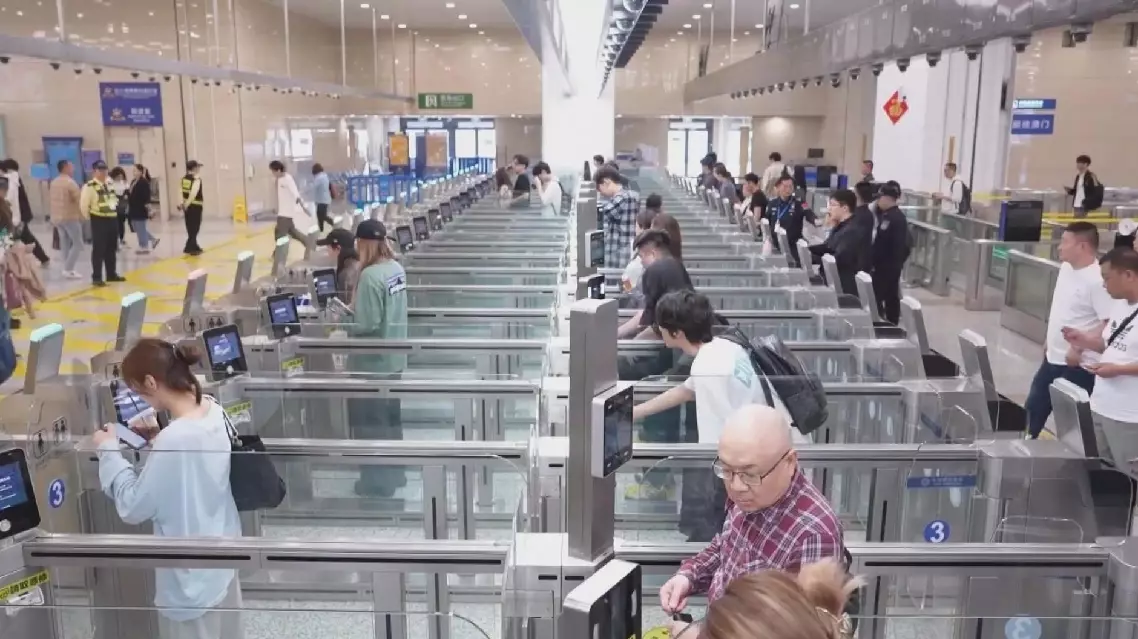
South China ports see rise in travelers from Hong Kong, Macao during Qingming Festival
China has pledged deeper ties with its neighbors to foster common development and stability, following a central conference on work related to neighboring countries, which saw Chinese ambassadors from around the region gather in Beijing this week.
The diplomats and experts attending the conference said the country is working to promote regional collaboration amid growing global uncertainties, strengthening its ties with its neighbors in a way that takes account of both the regional and the global context.
"The trade volume between China and Malaysia reached 212 billion U.S. dollars [in 2024], marking an 11.4 percent year-on-year increase. A large number of infrastructure projects including highways, bridges, ports, terminals and hydropower stations are being implemented across Malaysia. China-Malaysia cooperation epitomizes the broader collaboration between China and ASEAN. We are confident that under the strategic guidance of both countries' leaders, bilateral relations will reach new heights," said Ouyang Yujing, Chinese Ambassador to Malaysia.
"ASEAN and China are geographically close and culturally connected, making ASEAN our important partner for development cooperation. Our combined population exceeds 2 billion, representing a massive market with sustained rapid economic growth in recent years and promising prospects," said Hou Yanqi, Chinese Ambassador to ASEAN.
Other Chinese diplomats said China was being guided by the principles of amity, security, prosperity and win-win cooperation, to promote a shared future with neighboring countries, using its own development to spur regional growth.
This vision has led to concrete achievements, with a consensus on a shared future agreed with 17 neighboring states, Belt and Road cooperation agreements in effect with 25, and 18 regional nations now counting China as their largest trade partner. These deepening political and economic ties have cleared a path toward warm neighborly relations and mutual prosperity, according to other ambassadors.
"China has established comprehensive strategic partnerships with all Central Asian countries and signed Belt and Road cooperation documents. We are jointly committed to building a community with a shared future," said Han Chunlin, China's Ambassador to Kazakhstan.
"The China-Pakistan Economic Corridor, as a pioneering project of the Belt and Road Initiative, has attracted over 25 billion U.S. dollars in direct investment and created 230,000 jobs. It has not only elevated China-Pakistan cooperation but also contributed to Pakistan's economic and social development," said Jiang Zaidong, the Chinese Ambassador in Pakistan.
As the global challenges brought by unilateralism and economic protectionism grow, China remains steadfast in advancing its vision of a shared future, strengthening partnerships with neighboring countries to anchor stability and renew hope, according to China's permanent representative to the United Nations, Fu Cong.
"We must steadfastly uphold fairness and justice, adhere to true multilateralism, safeguard the interests of developing countries, maintain the authority of international law, and firmly oppose 'might makes right'," he said.
"Our world has become highly interdependent. Attempts at 'decoupling' or forced division are not only impossible but also go against historical trends. We must promote shared development through global cooperation. This represents the true exemplar of major-country responsibility," said Wang Fan, president of China Foreign Affairs University.
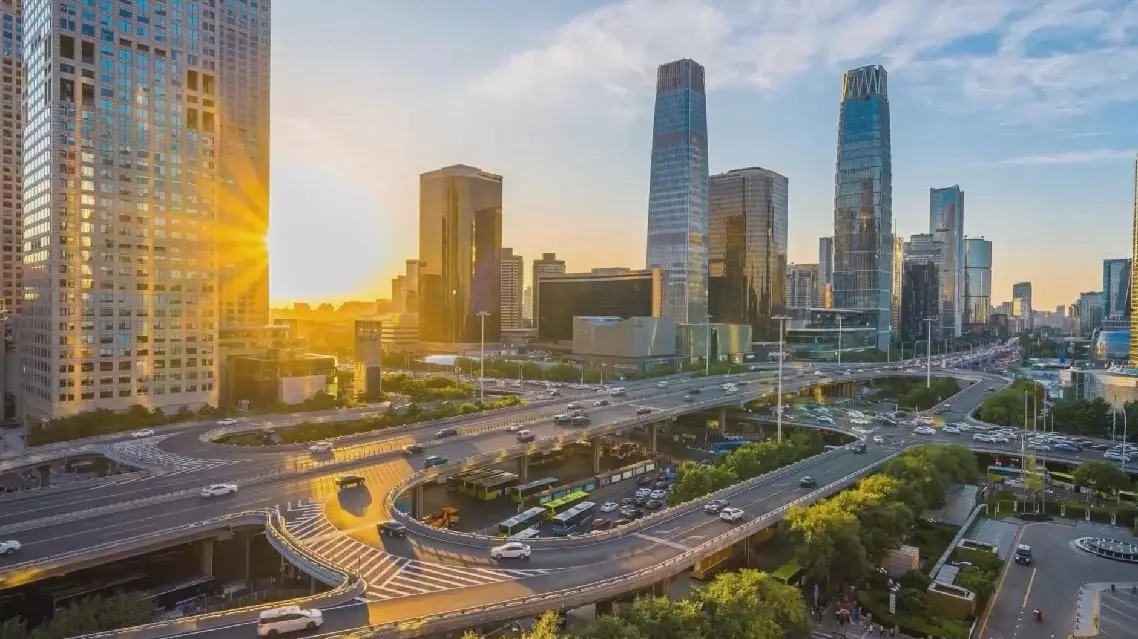
China pledges deeper cooperation with neighbors to foster stability



